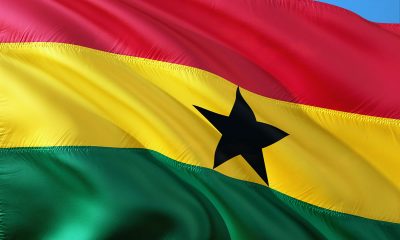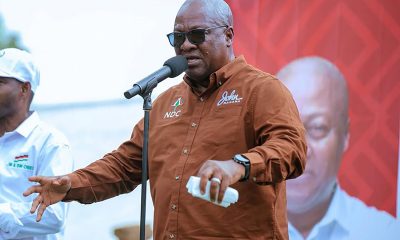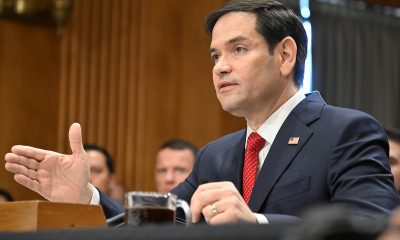Africa
Ghanaian man assaulted for being gay
Alleged assailants told victim that anti-LGBTQ bill was law
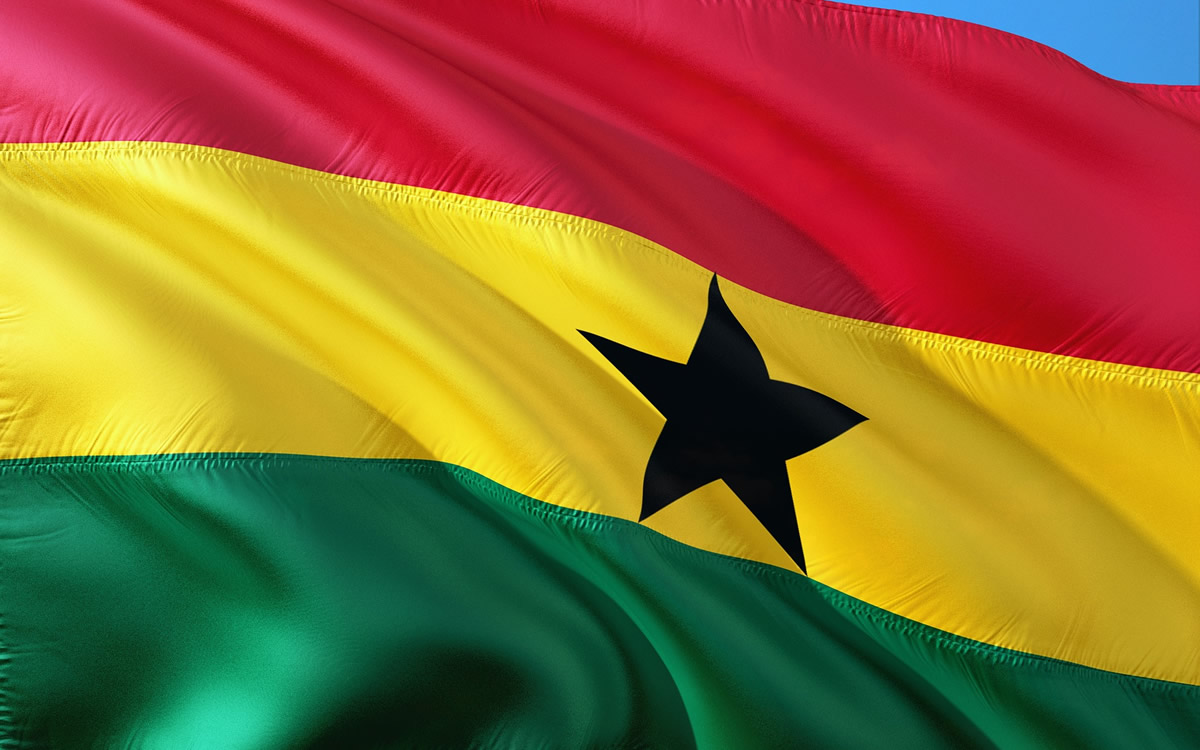
Four people last week assaulted a Ghanaian man who they accused of being gay.
According to the Queer Ghana Education Fund, the four men who attacked the man in Zuarungu in the country’s Upper East Region referenced the Promotion of Proper Human Sexual Rights and Ghanaian Family Values Bill, an anti-LGBTQ bill that is currently before MPs. The assailants, according to QuGEF, told the 25-year-old man, who the group identified as Francis, that the measure had become law.
QuGEF also said two of the four men who attacked Francis have been arrested and charged with “assaulting and stealing from” him.
“They ambushed and accused him of homosexuality and told him that the bill had been passed into law and that they were acting according to the law,” said QuGEF in a press release.
Rightify Ghana, another LGBTQ rights group, commended the police’s swift response.
“The misinformation has gone far and bad actors are targeting LGBTQ persons believing that the bill has been passed and they can act unlawfully,” said Rightify Ghana. “Good that two out of four of the perpetrators have been arrested by the police in Bolgatanga, following a report made by QuGEF.”
Although President Nana Akufo-Addo has not signed the bill, many politicians and religious leaders have given Ghanaians the impression that it is now law. Many LGBTQ Ghanaians as a result have been ridiculed and assaulted in public, leaving many of them in fear to publicly disclose their gender identity or sexual orientation.
Apostle Kadmiel E.H. Agbalenyoh, founder and leader of the Seventh Day Congregation of Theocracy, and his church on Jan. 1 organized an anti-LGBTQ seminar and protest that took place at the Achimota Girls’ Guide in Accra, the country’s capital. Greater Accra Regional Chief Imam Alhaji Sule Issa chaired the event that other faith leaders and radio personality Blakk Rasta attended.
Rightify Ghana described the protest as “the first anti-LGBTQ event this year” and it was “organized by a long time homophobe whose hate campaign is not new.” The group also said the remarks by MP Sam George, one of the bill’s sponsors who said lawmakers will pass it before the end of next month, are not true.
“Whilst the Parliament of Ghana has only done up to Clause 6 in the Consideration Stage, the MP falsely claimed that they had worked on 11 clauses. He is setting deadlines and lying about work they have not yet done,” said Rightify Ghana.
“Contrary to what he said, only s out of the 25 clauses have been considered by Parliament,” the group further noted. “Even with those six, some were referred to the drafting division to be worked on and those that were proposed to be deleted are to be reintroduced under other yet-to-be-discussed clauses or separately at the end.”
Activism Ghana, another advocacy group, also accused George of giving false timelines.
“He keeps lying, even about his own bill,” said Activism Ghana.
Former President John Mahama, who is a presidential candidate for the National Democratic Congress, the leading opposition party, has encouraged MPs to pass the bill and for Akufo-Addo to sign it into law.
“I am against LGBTQ, my faith doesn’t support it a man is a man, a woman is a woman,” said Mahama.
Presidential and Parliamentary elections will take place in December.
Africa
Report: Anti-LGBTQ discrimination has cost East African countries billions
Open for Business highlights Kenya, Uganda, Tanzania, and Rwanda

The economies of four East African countries are losing more than $5 billion a year because of discrimination against LGBTQ people.
The 80-page report that Open for Business, a coalition of leading global organizations that champion LGBTQ inclusion, released in late March focuses on Kenya, Uganda, Tanzania, and Rwanda. It attributes the losses to anti-homosexuality laws, and predicts more economic costs if lawmakers implement other harsh anti-LGBTQ measures.
The report notes Uganda is losing $2.4 billion, or 5.2 percent of its GDP, annually because of the Anti-Homosexuality Act that took effect in 2023. Open for Business last October revealed the country had already lost $1.6 billion in foreign direct investment, donor aid, trade, tourism, public health and productivity after President Yoweri Museveni signed the law.
Kenya is losing $1.5 billion, or 1.38 percent of its GDP.
The report warns that enacting the pending Family Protection Bill would cost the country an additional $6.3 billion, or 5.8 percent of its GDP, annually. Opposition MP Peter Kaluma, who has introduced the measure, in January claimed the Biden-Harris administration had blocked it and vowed to have fellow MPs pass it after U.S. President Donald Trump’s inauguration.
Kaluma is a strong supporter of Trump and the Republican Party’s opposition to LGBTQ rights and other far-right conservative ideologies.
Tanzania is losing $1.1 billion, or 1.33 percent of its GDP, because of anti-LGBTQ discrimination. Rwanda is losing $45 million, or .32 percent of its GDP.
Homosexuality is not illegal in Rwanda unlike the other three countries, but consensual same-sex sexual relationships remain taboo. Queer Rwandans also face stigma, discrimination, social exclusion, and arbitrary detention.
“A series of private member bills in Uganda, Kenya, and Tanzania have threatened to pull the region back in terms of progress and human rights for LGBTQ+ people, and damage both the ease of doing business and their international reputation,” states the Open for Business CEO Dominic Arnall.
Arnall notes his organization’s extensive engagement with businesses across East Africa over the last five years has always linked harmful anti-LGBTQ laws to impacts on a country’s investment prospects.
“The finding lays bare an uncomfortable truth: That laws that harm the LGBTQ+ community are standing in the way of prosperity and growth for all citizens in the region,” he said.
The report calls for LGBTQ inclusion as part of the region’s broader economic development agenda.
The Open for Business report notes anti-gay violence and discrimination in Tanzania has been on the rise since the late-President John Magufuli came to power in 2015. The country’s punitive anti-homosexuality law with a 30-year prison sentence for consensual same-sex sexual relations was already in place, but queer Tanzanians were generally not systematically targeted.
“Reporting of neighbors or community members for suspected homosexuality is frequent and law enforcement officers have been known to pose as members of the LGBTQ+ community to entrap and blackmail LGBTQ+ individuals,” states the report.
It also notes the Tanzanian government’s crackdown on websites and social media accounts that promote LGBTQ rights and threatening the arrests of administrators who allow such content. The report concludes this suppression has caused queer people to live in fear and isolation.
Religious organizations, particularly Christian churches in Tanzania, also champion anti-LGBTQ rhetoric by encouraging their followers against tolerating homosexuality and transgender people. Politicians, meanwhile, use anti-LGBTQ narratives to gain support during campaigns.
While Rwanda stands out as the only East African country in which homosexuality is not criminalized and has foreign donors implementing programs that target the queer community, discussing LGBTQ rights in public is rare and same-sex relationships are not legally recognized. The Open for Business report notes this situation creates legal ambiguity and a fragile social environment for queer Rwandans.
“Several LGBTQ+ rights organizations have emerged in recent years, mostly in Kigali, although they do not always identify themselves as LGBTQ+ associations and are rarely formally registered, making it difficult for them to receive funding,” reads the report.
The Rwandan government has rejected calls to criminalize homosexuality, which it considers a “private matter.” It has also been adamant against efforts to protect queer people for fear of domestic opposition and a desire not to politicize the issue like in neighboring countries.
Kenya, like Rwanda, has for a long time been considered more receptive of queer people, “as long as LGBTQ members are not ‘too loud.’”
Anyone convicted under Kenya’s colonial-era sodomy law could face up to 14 years in prison. Efforts to enact a harsh anti-homosexuality law and anti-LGBTQ protests that religious leaders, politicians, and activists have organized have increased homophobia in the country.
“LGBTQ individuals report significant difficulties in securing formal employment, which pushes many of them into more precarious livelihoods in the informal sector,” states the report.
Namibia
Namibia’s new president promises equality, ‘prosperity for all’
Netumbo Nandi-Ndaitwah is country’s first female head of state
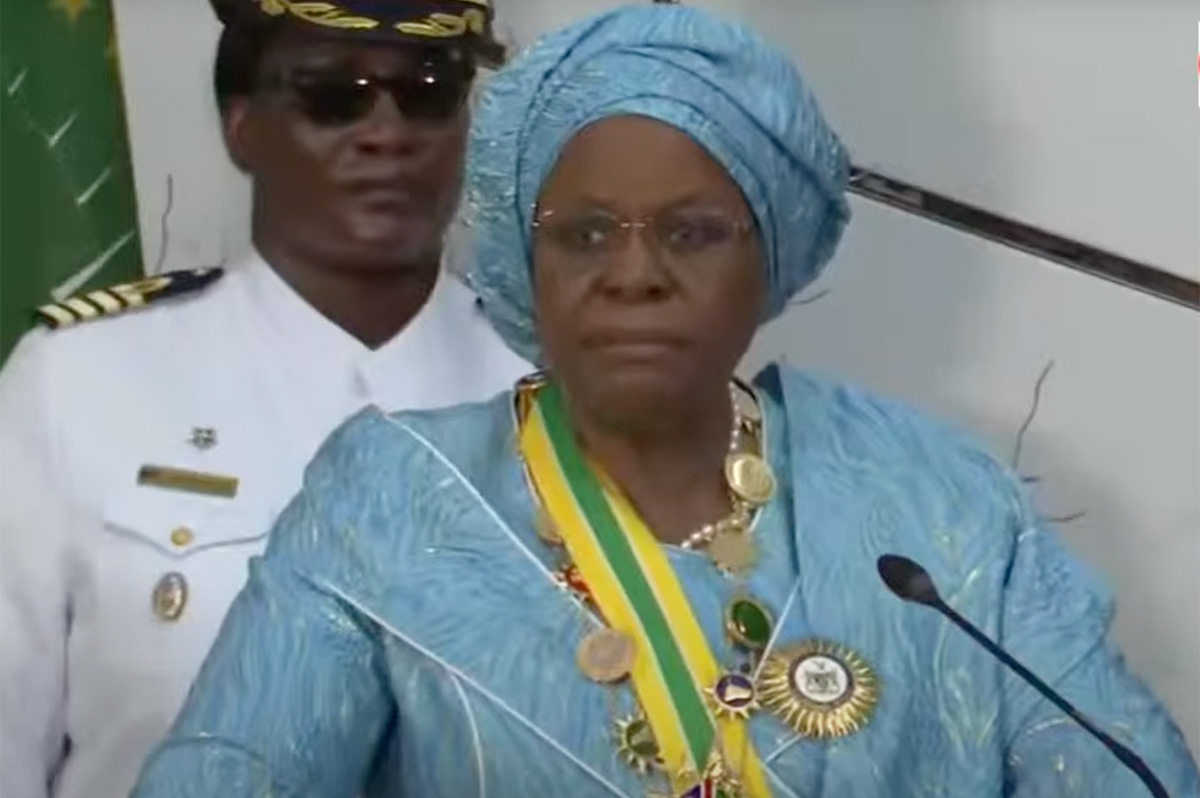
March 21 was a historic day for Namibia with the inauguration of Netumbo Nandi-Ndaitwah, the country’s first female president who resoundingly won last November’s presidential election.
Nandi-Ndaitwah in her inaugural speech vowed to uphold the rights of every Namibian by bringing shared prosperity for all, and pledged to enhance gender parity across the country.
“The task facing me, as the fifth president of the Republic of Namibia, is to preserve the gains of our independence on all fronts and to ensure that the unfinished agenda of economic and social advancement of our people is carried forward with vigor and determination to bring about shared, balanced prosperity for all,” she said. “I am optimistic that, as a nation, we can make a success of our country. We must work together as a united people with one heart and one mind.”
Nandi-Ndaitwah’s remarks come at a time when LGBTQ Namibians face the possibility of being criminalized.
MP Jerry Ekandjo in 2023 tabled the Marriage Amendment Private Members’ Bill and Spouse Bill, which would have made same-sex marriages illegal, regardless of whether they had been legally performed outside Namibia. Those who would have violated the proposed law would have faced up to six years in prison, a $5,000 fine, or both.
Former President Nangolo Mbumba earlier this month refused to sign the bills into law because a majority of MPs did not pass them, and they presented constitutional challenges. Former Home Affairs, Immigration, Safety, and Security Minister Albert Kawana last July tabled the marriage proposal in parliament, and labeled the two bills as redundant.
The Marriage Bill, which became law on Oct. 2, 2024, exactly four months after Kawana tabled it, repealed the Marriage Act of 1961 and all its subsequent amendments, including the Supreme Court decision which recognized same-sex marriages legally performed outside Namibia.
The Marriage Act of 2024 says a marriage or marital union between persons of the same sex wherever conducted, or a marriage or marital union conducted in a country other than Namibia which cannot be validly conducted in Namibia is illegal. Anyone who violates the law can face up to four years in prison, a $1,000 fine, or both.
“This law impacts all Namibians, from stricter marriage age requirements to mandatory public notification of intended unions,” said Equal Rights Namibia, a Namibian LGBTQ advocacy group. “Its effects extend beyond same-sex couples, complicating cross-national marriages and limiting personal freedoms. Equal Namibia calls for strategic litigation support and Namibians whose rights are violated by this unconstitutional law to join us in our fight.”
Consensual same-sex sexual relations remain decriminalized following last July’s landmark High Court ruling that struck down Namibia’s apartheid-era sodomy laws.
“The Namibia High Court’s decision to overturn these laws and decriminalize consensual same-sex sexual conduct is a victory for love, for equality and for human rights,” said Khanyo Farise, Amnesty International’s deputy regional director for East and Southern Africa. “This ruling is a step toward ending discrimination in equal access to health care and other social services and ensuring that all people in Namibia can choose their partners without fear of reprisals and live their lives in dignity.”
Kenya
Outcome of transgender rights case in Kenya remains uncertain
Country’s attorney general has asked High Court to dismiss lawsuit
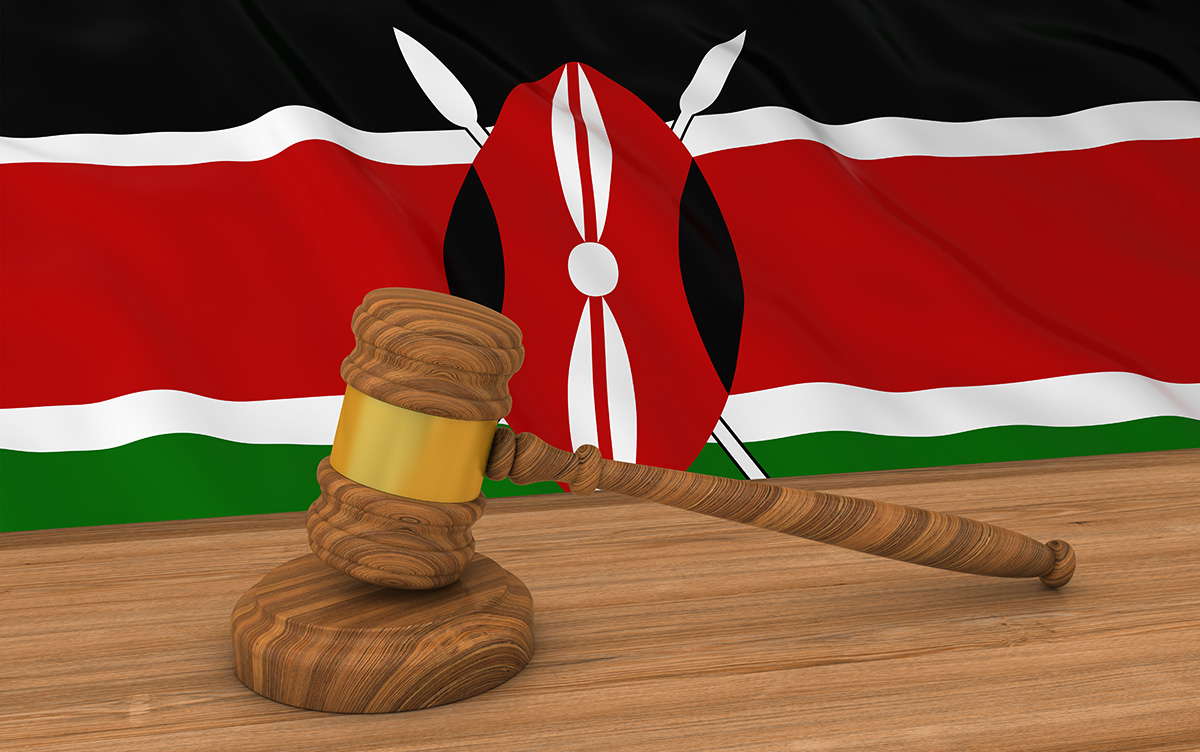
Transgender Kenyans’ efforts to receive birth certificates that reflect their gender identity now hang in the balance, despite several legal victories.
Attorney General Dorcus Oduor has asked the High Court to dismiss a pending case that three trans people have filed. Oduor argues a person is born either “a boy or a girl” and existing laws do not allow for anyone to change their sex in adulthood.
Oduor in her written submission to Justice Bahati Mwamuye also argues gender identity and the government’s issuance of a birth certificate are based on a person’s physical appearance. Her argument, however, exempts intersex people.
The government last month officially recognized intersex people in a Kenya Gazette notice that said they can receive birth certificates with an “I” gender marker. The country’s historic intersex rights law took effect in 2022.
“The existing laws of the land do not contemplate change of gender, and marks of transgender are not a basis for determining one’s gender as either male or female,” Oduor states.
Oduor further maintains that a person’s feeling they are “unwillingly living in a wrong body” cannot justify changing their gender. Oduor maintains a person’s gender is based on fact — not feelings — and the plaintiffs at birth were registered and named based on their gender status.
Audrey Mbugua, Maurene Muia, and Arnest Thaiya are the three trans people suing Oduor, the Registrar of Births and Deaths, the National Registration Bureau, and Immigration Services Director General Evelyn Cheluget in order to receive amended birth certificates.
The plaintiffs argue the current discrepancy in crucial documents — birth certificates, national identification cards, and passports — has denied them opportunities and rights. They disagree with Oduor’s position on determining one’s sex, arguing the process is “not scientific, but subjective.”
“There are no identifiers of sex or definitions of the biological or psychological components of sex,” the plaintiffs argue. “In any event, such biological components cannot be limited to genitalia only, but also chromosomes, gonads, hormones, and the brain.”
They further maintain that trans people cannot be forced to live with names of the wrong gender as adults. Oduor, however, maintains that only mistakes, such as spelling errors or parents in ID documents, can be changed and not a gender marker.
Amka Africa Justice, Jinsiangu (“my gender”) Kenya, and the Kenya Human Rights Commission are among the advocacy groups that have joined the case.
Mbugua, a well-known trans activist, has been pushing for legal rights in the court for more than a decade.
She filed a lawsuit in which she demanded the government identify her as a woman and to be allowed to live as one, not as a male as she was registered at birth. A landmark ruling in 2014 ordered the Kenya National Examinations Council to change Mbugua’s name and replace the gender marker on her academic certificates.
Mbugua also founded Transgender Education and Advocacy, a group with more than 100 members. A long court battle that ultimately proved successful allowed Transgender Education and Advocacy to become the first publicly-funded trans rights organization in Kenya.
Transgender Education and Advocacy’s initiatives include offering legal aid to trans people seeking to change their names, photos, and gender markers in documents, pushing for legal reforms to end discrimination based on gender identity and expression, and providing economic assistance to trans people who want to overcome poverty and sexual exploitation.
Jinsiangu Kenya, established in 2018, also champions equal access to health care and other basic services without discrimination based on gender identity and expression.
A report that Jinsiangu Kenya released in July 2021 notes 63 percent of trans people surveyed did not have ID documents or records with gender markers that coincide with their gender identity. The report also notes 10 percent of trans people surveyed said officials denied them an ID card or passport, and they were unemployed because they did not have the proper documents.
-
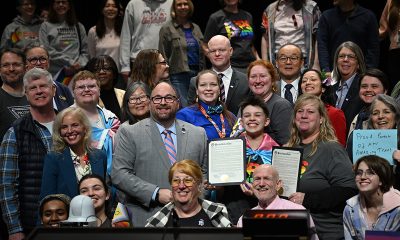
 Virginia5 days ago
Virginia5 days agoFairfax County School Board issues Trans Day of Visibility proclamation
-

 Trinidad and Tobago5 days ago
Trinidad and Tobago5 days agoTrinidad and Tobago recriminalizes homosexuality
-
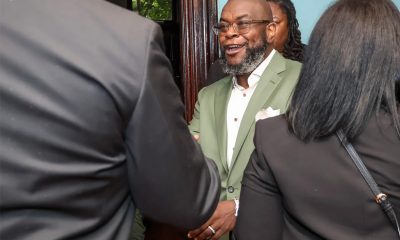
 National2 days ago
National2 days agoDestination Tomorrow works to empower LGBTQ community
-

 Maryland2 days ago
Maryland2 days agoAt transgender visibility celebration, Moore called out for lack of action

